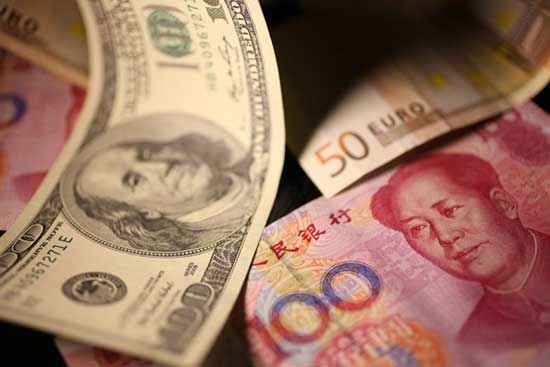

 |
| (File Photo) |
BEIJING, Aug. 27 -- China is not the main cause of the current chaos in the global financial market. Problems in the West are more to blame.
Turmoil has swept financial markets across the globe over the last few weeks, slashing stock prices, jolting the value of major currencies, and beating commodity prices to their lowest points in many years.
Western analysts have attributed the volatility to China's stock market rout, or to China's adjustment of its foreign exchange rate formation mechanism, which led to the yuan's depreciation.
The accusations are unfair and groundless.
It is undeniable that repeated sharp declines in China's stock market since mid-June have shaken investors' confidence, and fears and anxiety have radiated to global bourses.
Apart from some psychological impact, however, Chinese stocks affect the global market little as they are largely isolated from the rest of the world.
Domestic investors are prohibited from directly trading foreign equities, and overseas investors can bet on the Chinese market only via the closely managed Qualified Foreign Institutional Investors and Shanghai-Hong Kong Stock Connect arrangements.
Similarly, the yuan's depreciation has limited influence on global stock and currency markets as the yuan is not fully convertible.
Recent sell-offs in China's stock market dominated by irrational retail investors were just out of panic. Economic fundamentals in the country are stable, with glimmering signs of improvement.
As one of the encouraging results of economic restructuring, the services sector increased 8.4 percent in the first half of 2015 and it accounted for 49.5 percent of China's GDP.
The economy is regaining steam as the government has started new growth engines, including by encouraging more sophisticated equipment manufacturing and the integration of the Internet with traditional industries, by developing regional trade and infrastructure, and by international industrial cooperation.
The International Monetary Fund estimated that China contributed 27.8 percent of global economic growth by last year, higher than the U.S. contribution of 15.3 percent. The institution expects the Chinese figure to grow to 28.5 percent this year.
Although the Chinese economy is slowing down amid headwinds, it is still expanding at one of the fastest speed in the world.
China's GDP has risen to about 10 trillion U.S. dollars, and a growth of 7 percent can translate into huge wealth and great opportunities.
Apple's business in China continued to experience strong growth through July and August, with accelerating iPhone activations and the tills ringing in Apple Stores faster than at any other point in the year.
"I continue to believe that China represents an unprecedented opportunity over the long term," said CEO Tim Cook.
Sharing similar optimism, international investor Jim Rogers increased his stakes in Chinese stocks over the last few weeks, amid an epidemic of panic selling.
With growing economic power, China is influencing the rest of the world to an unprecedented degree. But the country is not responsible for everything. If China is not to blame, then who is?
Since the 2008 global financial crisis, many developed countries have pumped a great amount of liquidity into the market and lowered interest rates to nearly zero.
Hot money flowed to emerging markets for higher returns and helped create froth and dampen policymakers' efforts to reduce leverage.
As the U.S. economy is recovering, the federal reserve has hinted that it will hike interest rate this year, prompting international capital to flow back to the United States.
Currencies of emerging markets are under huge depreciation pressure as capital could leave in a large scale. Drastic changes in the value of major currencies make the financial market even more turbulent.
In addition, the prolonged European debt crisis casts a shadow on global economic recovery. Geopolitical issues and terrorism also add uncertainties to the world economy.
The current financial turmoil is a reflection of many complicated problems, most of which arise from Western countries, not from China.
 'Enemy planes' intercepted by Hongqi-7B air-defense missiles
'Enemy planes' intercepted by Hongqi-7B air-defense missiles Blind date with bikini girls in Nanjing
Blind date with bikini girls in Nanjing Amazing photos of Chinese fighter jets
Amazing photos of Chinese fighter jets Chinese soldiers participate in training for V-Day parade
Chinese soldiers participate in training for V-Day parade Painting: Lonely women in Forbidden City
Painting: Lonely women in Forbidden City China and Russia hold joint drill in Sea of Japan
China and Russia hold joint drill in Sea of Japan 'Goddess' in Taiwan McDonald's
'Goddess' in Taiwan McDonald's Female soldiers at military parades
Female soldiers at military parades Photos of campus belle doing splits go viral
Photos of campus belle doing splits go viral The killing pools
The killing pools Parsing China's massive V-day parade
Parsing China's massive V-day parade Hype against economic model unjustified
Hype against economic model unjustified US wants China to receive deported immigrants in exchange for extradition of corrupt officials: experts
US wants China to receive deported immigrants in exchange for extradition of corrupt officials: expertsDay|Week